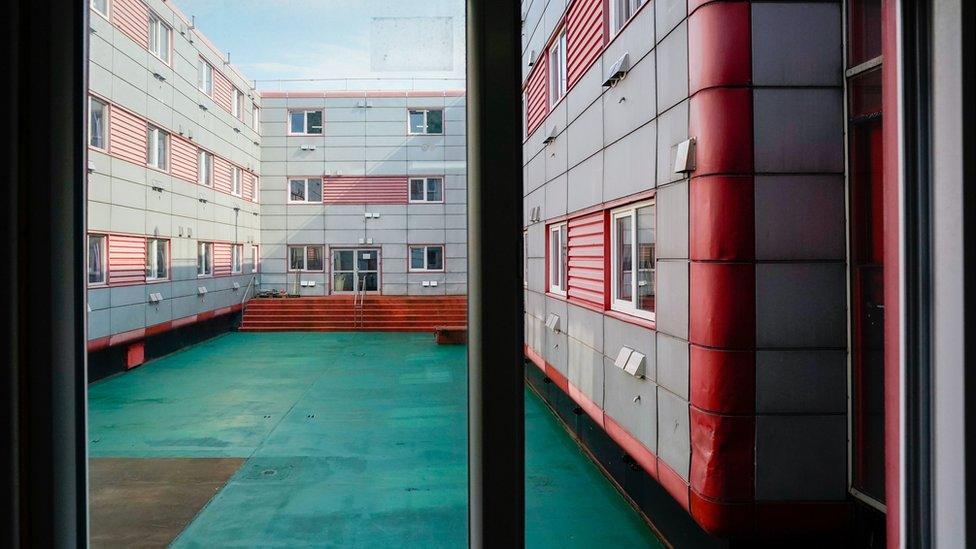Barge resident keen to start 'second chance at life'
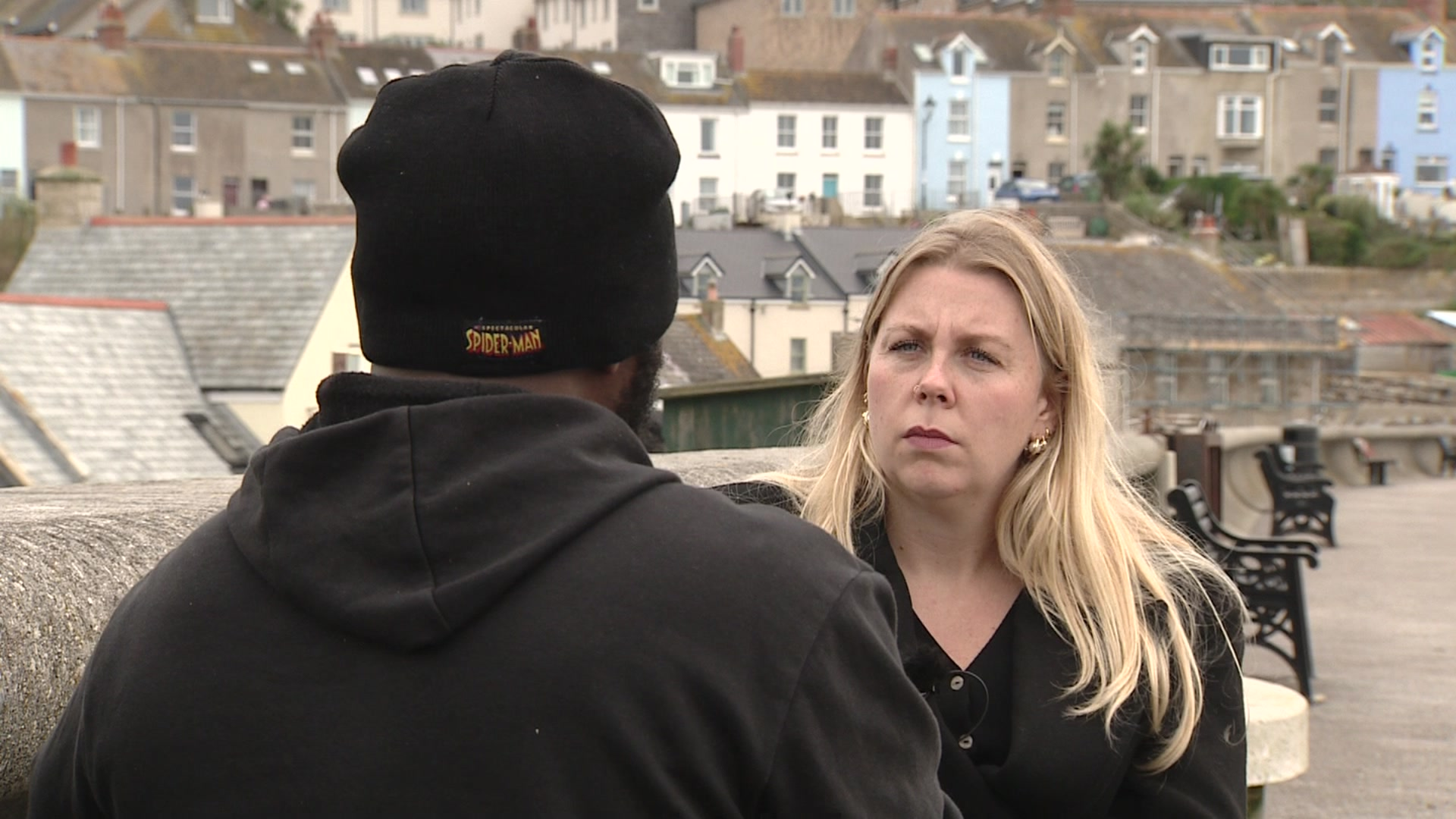
Cedrick spoke to the BBC's Sophie Cridland about life on the barge
- Published
Cedrick is keen to properly start his “second chance at life” when he leaves the Bibby Stockholm, which houses asylum seekers off the Dorset coast.
The qualified teacher said he had fled his home country of Cameroon after he and his family were targeted.
He flew to Heathrow in March, was moved onto the barge within weeks and has been there ever since.
“I was overwhelmed. The moment I knew I could apply for asylum was a great relief; I was very joyful. I had a second chance at life after all that I had been through,” he told the BBC.
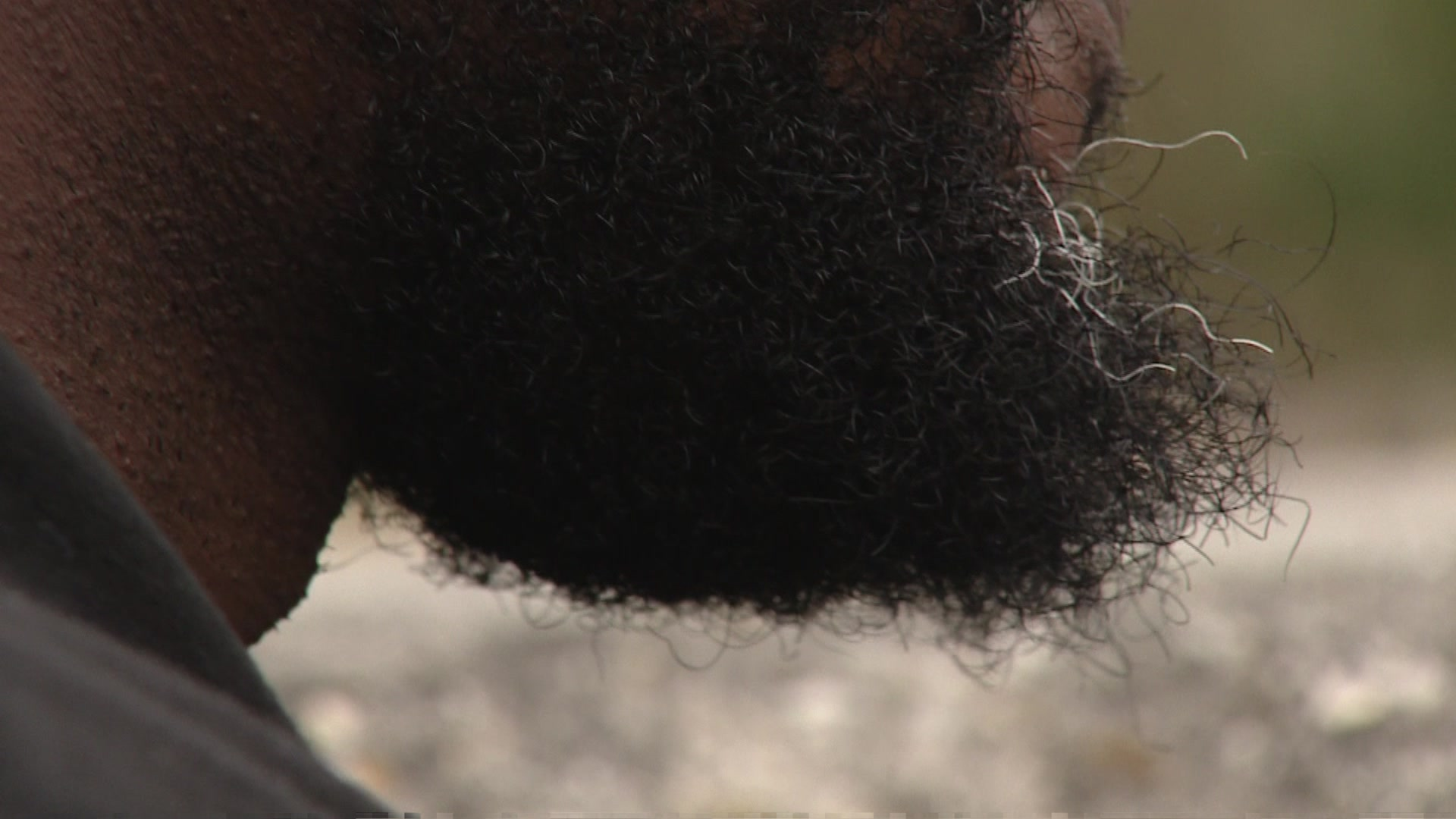
Cedrick said he fled Cameroon fearing for his life
Cedrick is one of about 100 residents who remain on the barge. Around 300 have been moved to places including Cardiff, Wolverhampton, Bristol and Worksop, ahead of its closure at the end of November.
For more than six years, there has been a guerrilla war in Cameroon between government forces and insurgents who want certain parts of the country to become an independent state.
Armed extremist groups also pose an ongoing threat in the Far North region.
Cedrick said: “I have been persecuted and my life’s in danger. I will be killed if I go back."
He said his parents had been attacked, their house burned and his Dad's car destroyed.
“So that’s why I’m here. I feel like here I’m at peace and my family can also be at peace,” he said.
“I wish to leave [the Bibby Stockholm] as well but it’s not my time yet so I have to hold on. I feel sad. I wish [former residents] all the best because we probably won’t see each other for a very, very long time.
“For now, I don’t know when I’m leaving, honestly. I’ve been on the barge for almost seven months and I don’t know when I’m leaving.”
Reporter Sophie Cridland has been speaking to a Bibby Stockholm resident from Cameroon.
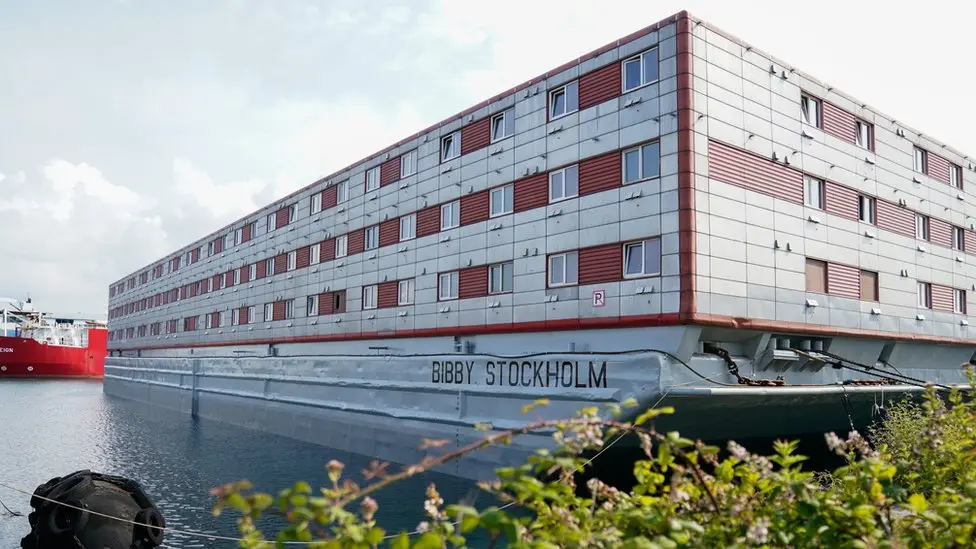
The Bibby Stockholm is set to close to all residents at the end of November
The new Labour government announced the barge’s closure in July.
That followed problems, including traces of Legionella bacteria being found in the vessel’s on-board water system, days after the first asylum seekers boarded in August 2023.
Welfare concerns were also sparked after Albanian national Leonard Farruku, 27, was found dead in his cabin. He was thought to have taken his own life.
Despite the possibility of applying for asylum later, Cedrick said not everything about life on the Bibby Stockholm was positive.
“When people are leaving they are very, very excited because here, you feel like you’re in jail, like you’re locked up. There are guards around you, security cameras everywhere. I know it’s for our safety but we feel quite uncomfortable,” he said.
“It feels like you’re being monitored, you don’t get your own space. The only space you get is when you’re in your room. But in the corridors, the laundry room, the TV room, the restaurant where we are – there are cameras everywhere.
“Security guards [saying]: ‘don’t do this, don’t do that.’ It’s like you’re being controlled.”
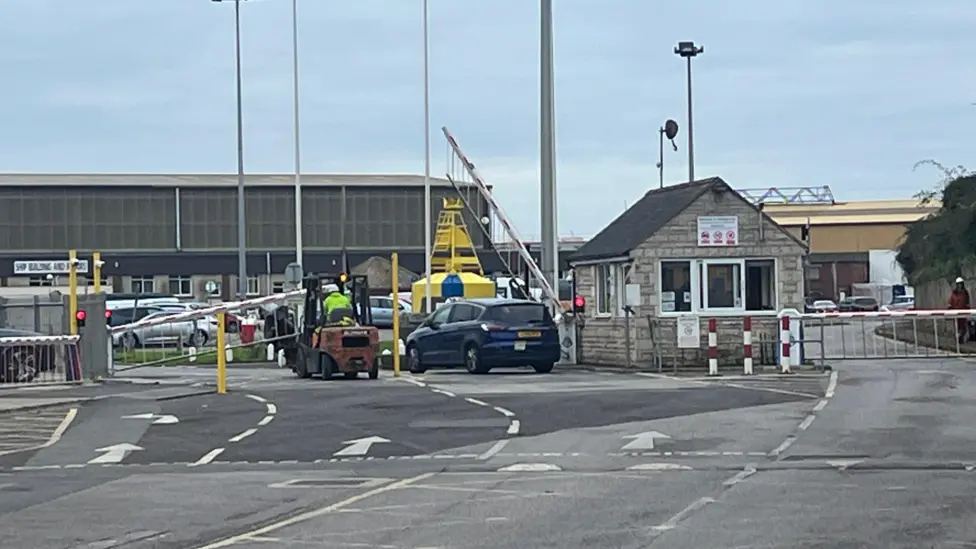
Taxis have been arriving at Portland to collect the men housed on the barge and move them on
The Bibby Stockholm was the first vessel secured under then home secretary Suella Braverman's plans to reduce the cost of asylum accommodation by housing asylum seekers on barges.
At the time, the Conservative government said it was spending £6m per day housing more than 50,000 migrants in hotels.
Get in touch
Do you have a story BBC Dorset should cover?
You can follow BBC Dorset on Facebook, external, X (Twitter), external, or Instagram, external.
Related topics
- Published30 October 2024
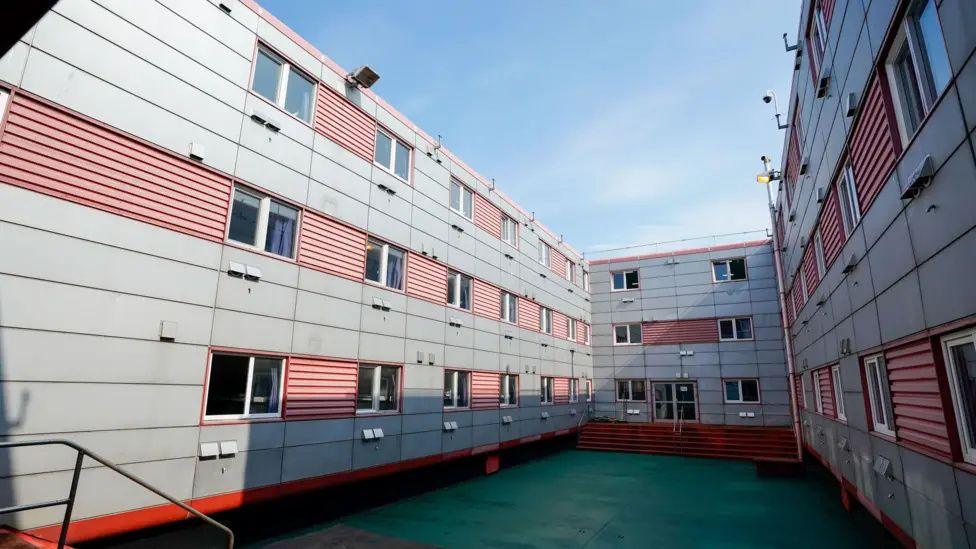
- Published29 October 2024
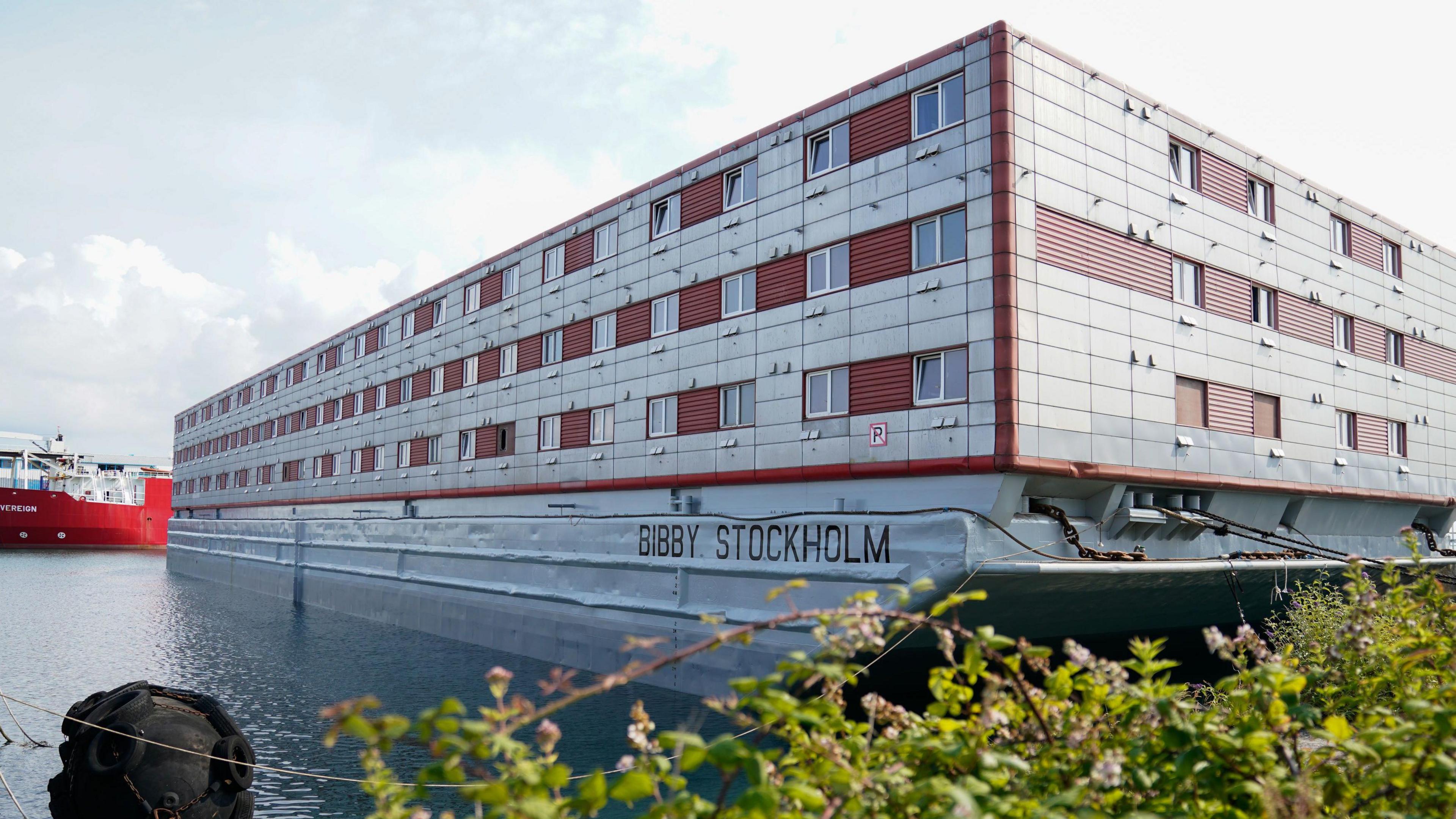
- Published29 October 2024
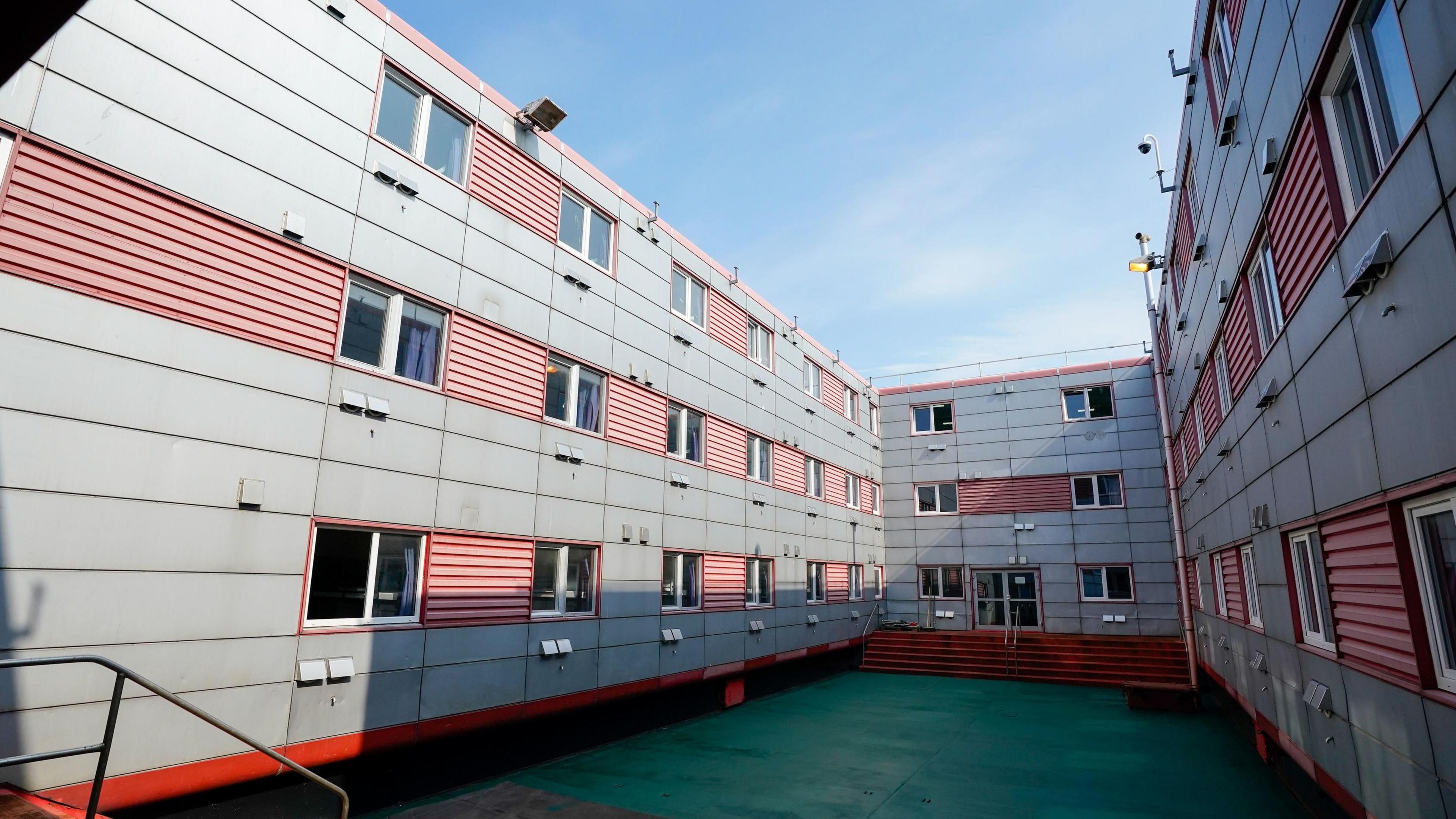
- Published23 July 2024
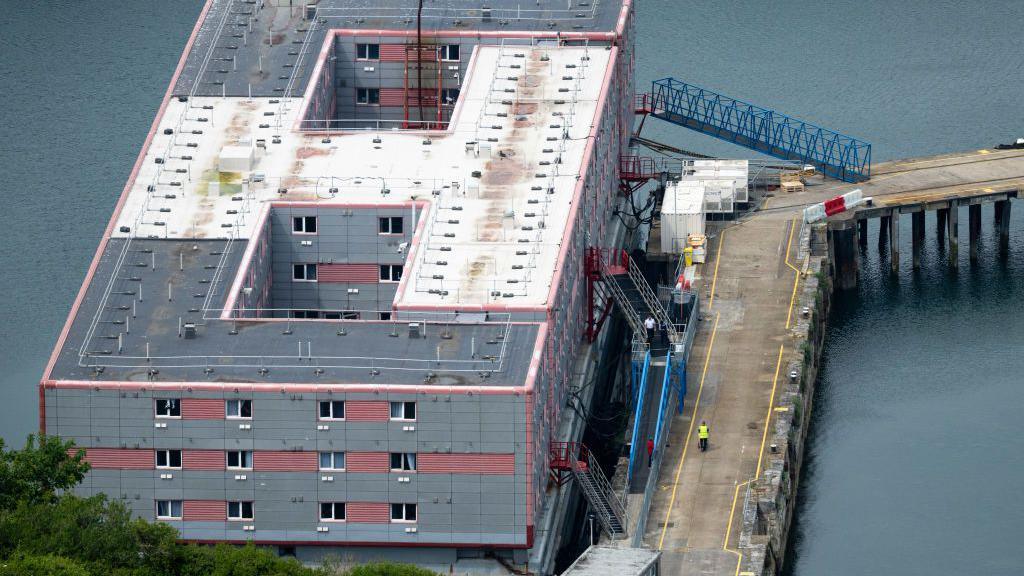
- Published7 August 2023
